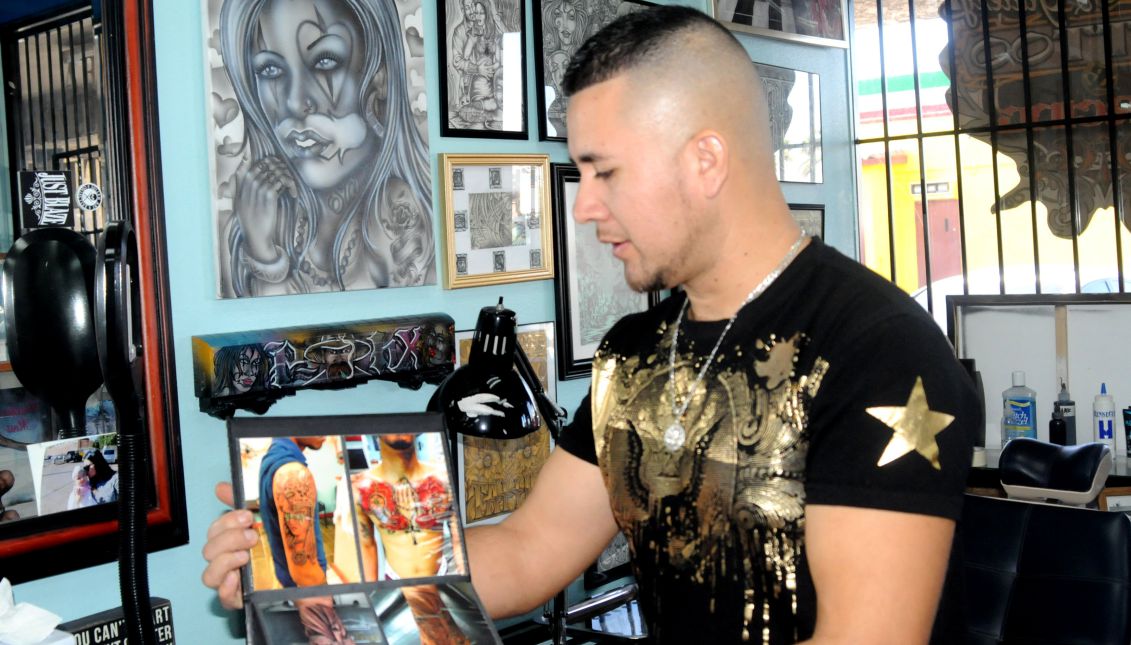
Tattoos might keep would-be immigrants out of US
Tattoos are often considered an art form, but for immigration authorities they are clues of something evil going on, and it"s up to them to decide whether the…
Tattoos are often considered an art form, but for immigration authorities they are clues of something evil going on, and it's up to them to decide whether the tattooed foreigner is indeed a threat to the nation's security.
For the tattooed would-be immigrant, meanwhile, it could signify the end of the American dream.
Attorney and immigration specialist Daniel Rodriguez told EFE that, following President Donald Trump's executive orders on immigration matters, border agents will study very carefully those they believe could be criminals, and see their tattoos as possible evidence of involvement in gangs or with organized crime.
"It was previously a question of verifying charges, but Trump's executive orders give more authority to Immigration and Customs Enforcement (ICE) agents to determine who looks like a risk, so they take a very careful look at people with tattoos. And though their record is clean, the official will make up his own mind about what action to take," he said.
Trump's executive orders give more authority to Immigration agents to determine who looks like a risk
Carmen Cornejo, director of the civil rights group known as the Lacey Larkin Frontera Fund, agreed on that point and told EFE that Trump's executive orders are opening doors to an invasion of immigrants' privacy.
"Though cases already existed of people who had their immigration process cut short because the tattoos on their skin were considered evidence of violence, this has now intensified and immigrants have to be very careful about what they do," she said.
Rodriguez said that immigration agents generally analyze whether a person is a risk to the country or if he has been involved in criminal organizations.
"In all these petitions for residency or entry, there is a moment when people are specifically asked if they have belonged to a gang, and if the official sees tattoos, though the person has stated that he has never belonged to a gang, his residency can be denied," he said.
Ivan Rivas, who has been a tattoo artist for more than nine years, told EFE that many of those tattoos with codes of criminal gangs originated in prisons.
A resident of El Paso, Texas, he said that he himself has been through the stigma applied by authorities to tattooed people.
"When the cops stop me, the first thing they look at are my tattoos, and they ask me if I belong to some gang, because I have a tattoo with letters that look like they could be codes, but no, I never belonged to one," he said.
He said that these days tattoos are considered art and went from being prison stigmas to a taste that can sometimes be "pretty expensive."
People get tattooed for all kinds of reasons. I even have clients who are police officers and immigration agents
"People get tattooed for all kinds of reasons, whether to record their experiences or remember someone who died or as an artistic expression. I even have clients who are police officers and immigration agents," Rivas said.
Manuel Gomez, who has a tattooing studio in Phoenix, told EFE that the most popular tattoos among gangs and convicts are tears on their cheeks, which record the number of lives they have taken, three dots under one eye which means "My crazy life," and the number 13, symbol of the Mara Salvatrucha street gang.










LEAVE A COMMENT:
Join the discussion! Leave a comment.